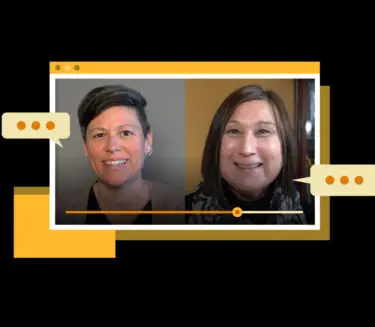Having worked in the field of fraud prevention for most of my career, I’m well acquainted with the fact that crimes of deception are an unfortunate, but common, aspect of Canadian life.
Even still, I was struck by the results of a survey that Interac recently conducted in order to better understand the impact that digital fraud is having on Canadians. Six in 10 Canadians who took part in the Interac Fraud Prevention Index say they’re more worried today about digital fraud than ever before.
Our study shows that Canadians are being targeted non-stop through a wide range of channels – phone, email, text and social media. Roughly half of participants reported that they or a family member have fallen victim to fraud. The problem reaches people of all ages, walks of life, and regions of the country.
The survey reached 2,259 adult residents of Canada and has a +/- margin of error of 2.5 per cent.
Some of what we learned
The survey told us there are lots of things Canadians could be doing to protect themselves from digital fraud. Despite seven out of 10 respondents reporting high levels of confidence in their ability to spot a suspicious situation, many of the same people have engaged in behaviours that make them vulnerable — two in five have clicked a link from an unknown source, for example, and a third of respondents have used online banking while using a public WiFi connection.
The Interac Fraud Prevention Index does identify some regional differences, meanwhile: Text message fraud is most prevalent in Quebec and least in Atlantic Canada, for example. Identity theft is more common in Montreal than in Toronto or Vancouver.
Yet while the experience of digital fraud may differ from place to place and person to person, I think the survey results ultimately tell us that the problem touches every region and every demographic.
When any issue affects half the population of the country, it demands to be treated as an urgent priority. Thankfully, there are steps we can all take as individuals — at home and within the organizations we work for — in order to combat whatever phishing and email scams and digital fraud attempts may target us.
What Interac is doing to combat fraud
At Interac, we believe education is the first line of defence, so we work diligently with our security partners to manage digital fraud risks and to arm Canadians with the information they need to spot, avoid and report scams. In recognition of the role we can play by using our platform to advance public education to fight fraud, Interac has worked with law enforcement agencies across Canada to communicate a “Stop, Scrutinize, Speak Up” approach to recognizing and foiling scams in our midst.
“Stop” means we’re advising Canadians to take a moment to stop, think, and follow their instincts when they encounter a request for personal information — whether it comes from a phone call, an email, a text message or an unexpected money transfer, or any other way. (There have even been phishing scams reported in Canada using Snapchat.)
“Scrutinize” means it’s wise to look for the tell-tale signs of a scam when confronted with a situation that doesn’t quite seem right. Outside advice may be called for; the Canadian Anti-Fraud Centre is an excellent place to educate oneself about what might be happening as well with financial institutions and local law enforcement. People should remember that they can take their time and think before responding to any kind of unexpected message. There’s never a reason to feel pressured into taking action — and indeed, pressure itself can be a sign of a fraudster at work.
Finally, “Speak Up” represents our advice to seek help when one suspects a fraud attempt. For example, we’re reminding Canadians that if they’ve already provided sensitive information to a fraudster, they should immediately contact their bank or financial service provider through the number listed on their website or on the back of their payment card and report to the Canadian Anti-Fraud Centre.
What we can do together
The prevalence of scams can be sobering, as are many of the findings of the Interac Fraud Prevention Index. Yet there’s one takeaway that can give us all hope: Seven in 10 Canadians want to know more about how to protect themselves and their families from fraud. I applaud that willingness to learn, especially since Canadians are the first line of defence in protecting themselves against fraud.
There are numerous resources available for Canadians to arm themselves against attempts to deceive them – your financial institution, the Canadian Anti-Fraud Centre, the CBA, and the Competition Bureau of Canada are all smart places to start.
If everyone works together to pool and share our knowledge, then Fraud Prevention Month can truly live up to its name and we really can prevent fraud from claiming more victims.
Interested in learning more about protecting yourself and your loved ones from digital fraud? Here’s everything you need to know about cyber security and safeguarding your data, identity, and money.





